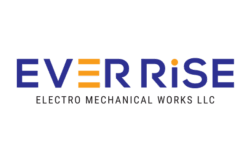
The Mechanical, Electrical, and Plumbing (MEP) sector is a critical component of the construction industry in the UAE. As the country continues to grow and urbanize at a rapid pace, regulatory frameworks are evolving to ensure that construction practices meet the highest standards of safety, sustainability, and efficiency. These regulatory changes have a significant impact on MEP contracting companies, influencing their operations, project delivery, and long-term strategies. In this article, we will explore the key regulatory changes affecting MEP contracting firms in the UAE and discuss their implications for the industry.
Overview of Regulatory Environment in the UAE
The UAE’s construction industry is governed by a complex set of regulations that are designed to promote safety, environmental sustainability, and quality. These regulations are set by various government entities, including the Dubai Municipality, the Abu Dhabi Department of Urban Planning and Municipalities, and the Federal Electricity and Water Authority (FEWA). MEP contracting companies must navigate these regulations to ensure compliance and maintain their reputation in the market.
Key Regulatory Bodies
- Dubai Municipality: Oversees building codes, safety standards, and environmental regulations in Dubai.
- Abu Dhabi Department of Urban Planning and Municipalities: Responsible for urban planning, infrastructure, and environmental sustainability in Abu Dhabi.
- Federal Electricity and Water Authority (FEWA): Regulates the provision of electricity and water services, including the installation and maintenance of MEP systems.
Recent Regulatory Changes
The regulatory environment in the UAE is dynamic, with frequent updates to laws and guidelines to align with global best practices. Some of the recent changes that have impacted MEP contracting companies include:
- Introduction of Green Building Regulations: To promote sustainability, the UAE has introduced green building regulations that mandate the use of energy-efficient MEP systems. These regulations require contractors to implement eco-friendly technologies and materials, significantly impacting the design and installation processes.
- Stricter Safety Standards: New safety regulations have been introduced to minimize risks in construction sites, particularly in high-rise buildings. These standards require MEP contractors to adhere to rigorous safety protocols, including regular inspections and certifications.
- Updates to Fire Safety Codes: The UAE has updated its fire safety codes, which now require more advanced fire detection and suppression systems in buildings. MEP contractors must integrate these systems into their designs, ensuring compliance with the latest standards.
Impact on MEP Contracting Companies
The evolving regulatory landscape in the UAE presents both challenges and opportunities for MEP contracting companies. While compliance with these regulations is mandatory, it also drives innovation and improvement within the industry.
HCompliance Costs and Operational Changes
One of the immediate impacts of regulatory changes is the increase in compliance costs. MEP contracting companies must invest in new technologies, training, and certifications to meet the updated standards. For example, the adoption of green building practices may require the use of more expensive materials and systems, leading to higher project costs. Additionally, companies may need to overhaul their operational processes to align with the new safety and environmental regulations.
Key Challenges:
- Increased project costs due to the implementation of new technologies and materials.
- Need for continuous training and upskilling of the workforce to comply with updated standards.
- Potential delays in project timelines due to stringent inspection and certification requirements.
Opportunities for Innovation and Market Leadership
While regulatory changes can be challenging, they also create opportunities for MEP contracting companies to differentiate themselves in the market. By embracing innovation and staying ahead of regulatory trends, companies can position themselves as leaders in the industry. For instance, firms that specialize in green building technologies or advanced fire safety systems may gain a competitive edge as demand for these services grows.
Opportunities:
- Expansion into niche markets such as sustainable construction and smart buildings.
- Enhanced reputation and credibility through adherence to the highest safety and quality standards.
- Potential for long-term cost savings through the adoption of energy-efficient technologies.
Strategic Adaptation and Long-Term Planning
To thrive in a regulatory environment that is constantly evolving, MEP contracting companies must adopt a proactive approach to compliance. This involves staying informed about upcoming regulatory changes, investing in research and development, and building strong relationships with regulatory bodies.
Strategies for Success:
- Continuous Monitoring of Regulatory Changes: Establish a dedicated team to track and analyze new regulations and assess their potential impact on operations.
- Investment in Technology and Innovation: Allocate resources to develop and implement cutting-edge technologies that align with regulatory requirements.
- Collaboration with Stakeholders: Engage with government bodies, industry associations, and clients to ensure a smooth transition to new regulatory standards.
The Future of MEP Contracting in the UAE
As the UAE continues to pursue ambitious infrastructure projects and sustainability goals, the regulatory environment will continue to evolve. MEP contracting companies that are able to adapt to these changes will not only survive but thrive in this competitive market. By prioritizing compliance, innovation, and strategic planning, MEP firms can position themselves as key players in the future of the UAE’s construction industry.
Predictions for Future Regulatory Trends
- Increased Focus on Sustainability: The UAE’s commitment to sustainability is likely to lead to even stricter regulations around energy efficiency, water conservation, and waste management in MEP contracting.
- Integration of Smart Technologies: As smart cities and buildings become more prevalent, regulations will likely evolve to address the integration of IoT, AI, and other advanced technologies into MEP systems.
- Global Alignment: The UAE may continue to align its regulations with international standards, particularly in areas such as fire safety, environmental protection, and occupational health and safety.
The impact of regulatory changes on MEP contracting companies in the UAE is profound, shaping the way firms operate and deliver their services. While these changes present challenges, they also offer opportunities for innovation and growth. By staying informed and adapting to the evolving regulatory landscape, MEP contracting companies can ensure their continued success in the UAE’s dynamic construction sector.
